Alternative Chinese City Names | All You Need to Know About Nicknames for Chinese Cities
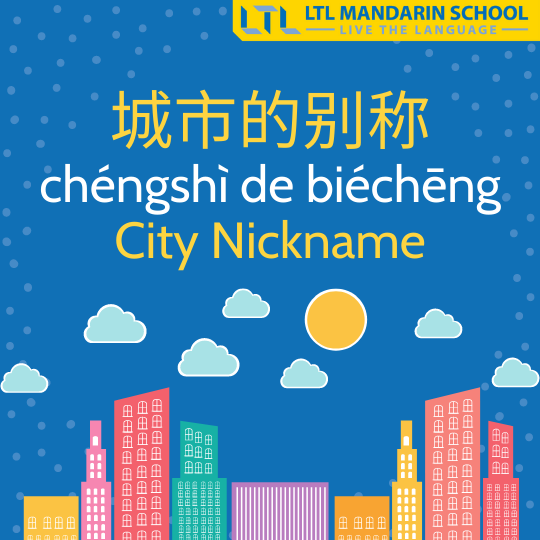
Most of you are probably already familiar with the most famous Chinese city names, but did you know that many Chinese cities also have a nickname?
A city nickname (城市的别称 chéngshì de biéchēng) captures the essence of a city or a particular aspect of it.
Whether you are able to travel in China or not at the moment, here are some of the most famous alternative Chinese city names that you most likely won’t find in your textbook.
Chinese City Names || Evil Spirited City AKA Shanghai
Chinese City Names || City of Rice AKA Guangzhou
Chinese City Names || Hibiscus City AKA Chengdu
Chinese City Names || City of Eternal Spring AKA Kunming
Chinese City Names || City on Rivers AKA Wuhan
Chinese City Names || Beer City AKA Qingdao
Chinese City Names || Spring City AKA Jinan
Chinese City Names || FAQs
Evil Spirited City AKA Shanghai
上海 (shànghāi): 魔都 (módū)
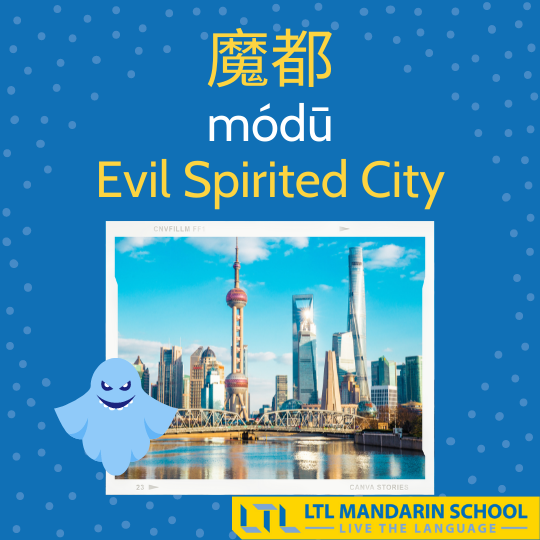
Most Chinese learners will already know that Shanghai上海 (shànghāi) means a city “on the sea”.
But did you know that among Chinese people 上海 is also known as 魔都 (módū) or the “evil spirited city”?
魔 (mó) means “devil” or “magic” and is composed of 麻 má or “hemp” and 鬼 (guī) which means a “ghost”.
Some other usages and vocab incuding the character 魔 are:
● 魔鬼 mōguǐ: devil, demon, monster
● 魔法 mōfǎ: sorcery, witchcraft
● 魔戒 mōjiè: The Lord of the Rings
● 伏地魔 fúdìmó: Lord Voldemort (你是哈迷吗? Let us know below).
都 (dū) means a “city” and is composed of 者 (zhě) and 阝(fù). 都 is a 多音字 (duōyīnzì) or a poly-phone with another important pronunciation (dōu).
A few examples of 都:
● 首都 shǒudū: capital
● 古都 gǔdū: an ancient capital
● 成都 chéngdū: Chengdu (capital of Sichuan province)
● 脸都绿了 liǎndōulǜle: green in face/to look unwell (idiom)
USEFUL RESOURCE: Are you familiar with all uses of 都?Review these grammar points for HSK 1-6 related to 都 on the Grammar Wiki。
According to Wikipedia, 魔都 was first mentioned in Shōfu Muramatsu’s 1924 novel Mato (Demon City) which portrayed 上海 as a dichotomic city where “both light and darkness existed”.
Have you been to 魔都 yet? What did you think? Let us know below in the comments.
City of Rice AKA Guangzhou
广州 (guǎngzhǒu): 穗城 (suìchéng) / 花城 (huāchéng) / 羊城 (yángchéng)
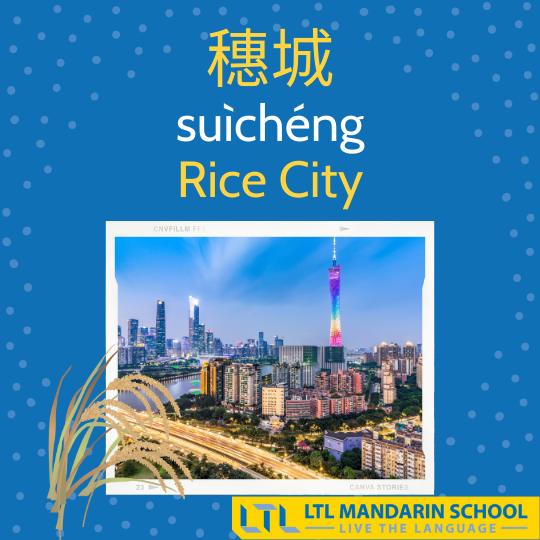
广州 (guǎngzhǒu) is known as Canton in the West but it also boasts much more flowery titles such as 穗城 (suìchéng) “City of Rice” and 羊城 (yángchéng) “City of Rams”.
穗 (suì) is the abbreviation of 穗城 (suìchéng), although, as with the rest of the province you would see 粤 (yuè) on car license plates.
The five stones at the old Temple of the Five Immortals are said to be the sheep ridden by the Taoist culture heroes credited with introducing rice cultivation to the area around the time of the city’s foundation giving the city the nickname 五羊城 (wǔyángchéng).
花城 (huāchéng) is usually a simple reference to the area’s fine greenery.
Word list:
● 穗子 suìzi: ear of grain/tassel
● 花 huā 🌹: is a flower and
● 羊 yáng: is of course a sheep! 🐑
Hibiscus City AKA Chengdu
成都 (chéngdū): 蓉城 (róngchéng) / 龟城 (guīchéng) / 锦城 (jǐnchéng)
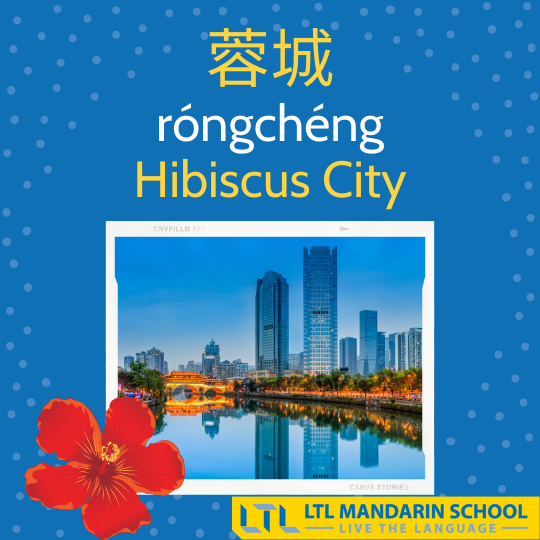
成都 chéngdū is the capital of the 四川 (sìchuān) province, probably best known for pandas 熊猫 (xióngmāo) 🐼 and spicy food.
But how do locals refer to their beloved hometown?
蓉城 (róngchéng) translates as the Hibiscus city.
This nickname comes from the hibiscus flower which 孟尝君 (mèngchángjūn) of 后蜀 (hòushǔ), King Mengchang of the Later Shu, ordered to be planted upon the city walls during the 10th century.
Examples of words including 蓉 are:
● 芙蓉 fúróng: 🌺 hibbiscus, cotton rose
● 蒜蓉 suànróng: minced garlic paste
龟城 (guīchéng) or Turtle City is derived from the old city walls’ shape on a map or a legend that Zhang Yi 张仪 (zhāng yí), a Warring States era strategist, planned by following a turtle’s tracks.
Examples of using 龟 include:
● 海龟 hǎiguī: sea turtle
● 乌龟 wūguī: 🐢 tortoise
● 忍者神龟 rěnzhěshénguī: Teenage Mutant Ninja Turtles
DID YOU KNOW – 锦城 (jǐnchéng) or Brocade City is a contraction of the earlier name 锦官城 (jǐnguāngchéng), City of the Brocade Official, after an imperial office established under 西汉 xīhàn (Western Han Dynasty 206 BC-8 AD).
Examples of using 锦:
● 锦缎 jǐnduàn: brocade
● 锦上添花 jǐnshàngtiānhuā: add flowers to brocade (idiom); to give additional splendor
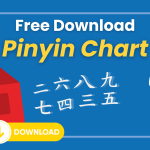
(FREE) Pinyin Chart // Learn How To Read Pinyin in 5 Minutes
Get Your FREE Downloadable Pinyin Chart – We spend hours behind the scenes creating excellent tools and useful things for you to use every day.
City of Eternal Spring AKA Kunming
昆明 (kūnmíng): 春城 (chūnchéng)
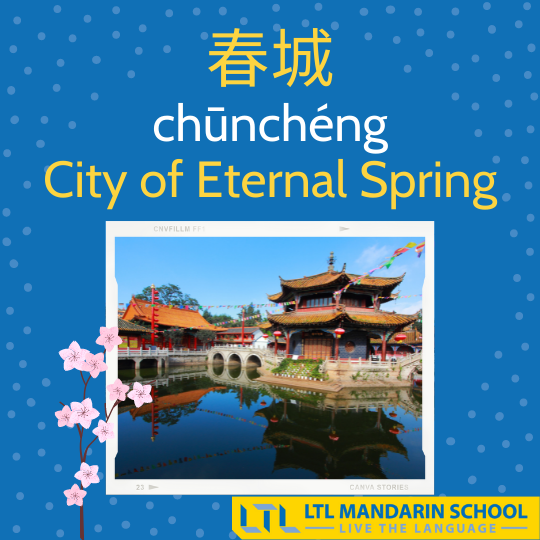
Located at an elevation of 1,890 meters (6,200 feet) on the Yunnan–Guizhou Plateau, 昆明 (kūnmíng) has one of the mildest climates in China, characterised by short, cool and dry winters and long, humid summers.
The perpetual spring-like weather which provides the ideal climate for plants and flowers, Kunming 昆明 is known as 春城 (chūnchéng): the City of Eternal Spring.
春 (chūn) is Spring, the first of the four seasons.
Examples of 春 being used include:
● 春天 chūntiān: Springtime
● 春节 chūnjié: Spring Festival or Chinese New Year
● 春秋 chūnqiú: Spring and Autumn Period (770-476 BC)
● 一花独放不是春, 百花齐放春满园 yìhuā dúfàng búshì chūn, bǎihuā qífàng chūn mǎnyuán: A single flower does not make spring / One swallow does not make summer.
City on Rivers AKA Wuhan
武汉 (wǔhàn): 江城 (jiāngchéng)
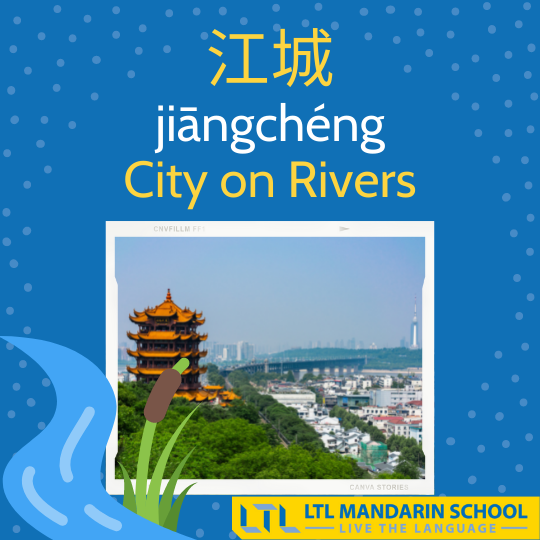
Wuhan 武汉 (wǔhàn) is the capital of 湖北 (húběi) Hubei Province.
The city is composed of the three towns:
- 武昌区 (wǔchāngqū)
- 汉口 (hànkǒu)
- 汉阳区 (hànyángqū)
The three towns, separated by the 长江 (chángjiāng) Yangtze and 汉江 (hànjiāng) Han rivers are linked by bridges.
Because these three municipalities are so closely connected by waterways, 武汉 is also called 江城 (jiāngchéng) the “city on rivers” as it is one of China’s most important hubs of water and rail transportation and communications.
Useful vocabulary:
● 长江 chángjiāng: Yangtze River
● 浙江 zhèjiāng: Zhejiang province
Beer City AKA Qingdao
青岛 (qīngdǎo): 岛城 (dǎochéng)/半岛 (bàndǎo)/啤酒城 (píjiǔchéng)
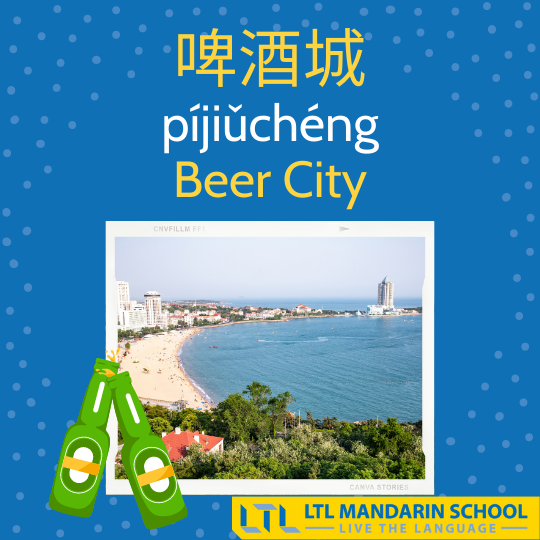
啤酒城 (píjiǔchéng) “Beer City”.
No discussion about 青岛 would be complete without mentioning beer.
The Qingdao International Beer Festival is held in 啤酒城 near 石老人浴场 (shílǎorényùcháng) Old Stone Man Beach every August.
Useful words to learn here include:
● 啤酒 píjiǔ: 🍺 beer
● 石 shí: stone
● 浴场 yùcháng: bathing spot
Do you enjoy drinking 青岛啤酒? Share your experiences below in the comments section.
岛城 (dǎochéng) is a name that has recently gained greater popularity as a nickname for 青岛 (qīngdǎo). It literally means “Island City”.
Technically, 青岛 is a peninsula surrounded by the Yellow Sea and Jiaozhou Bay but the name island 青岛 (qīngdǎo) literally means green/blue island (岛 dǎo meaning island) and this part of the name seems to have stuck.
Vocabulary:
● 青 qīng: green or blue
● 青年 qīngnián: young people
● 青菜 qīngcài: green vegetables
● 青蛙 qīngwā: 🐸 frog
● 青山不老,绿水长存 qīngshānbùlǎo, lǜshuǐchángcún: The blue mountains do not grow old, the green waters always remain (idiom).
半岛 (bàndǎo) literally means half island, or peninsula.
It refers to the city’s position on the tip of land west of 崂山 (láoshān) that juts out of the mainland and wraps around 胶州湾 (jiāozhōuwān).
半岛 is the name of 青岛‘s largest daily newspaper.
Vocabulary:
● 半岛 bàndǎo: peninsula
● 湾 wān: bay
● 台湾 táiwān: Taiwan

The Complete Guide to Countries & Capitals in Chinese
You may know how to say China in Chinese but what about other countries? Let’s learn how to name all the countries and their capital cities in Chinese.
Spring City AKA Jinan
济南 (jǐnán): 泉城 (quánchéng)
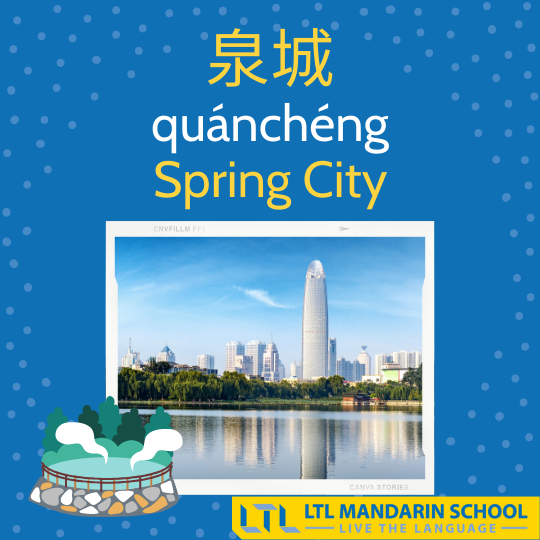
The last example actually comes from a Chinese textbook believe it or not!
泉城 (quánchéng) is featured in the HSK 5 textbook by Jiang Liping.
济南的泉水,历史悠久,最早的文字记载可以推到3000多年前。
jǐnán de quánshuǐ,lìshǐ yōujiǔ,zuì zǎo de wénzì jìzǎi kěyǐ tuīdào 3000 duō nián qián
The spring water in Jinan has a long history. The earliest mentions are over 3000 years old.
Bonus vocabulary (for HSK 5 students):
● 泉水 quánshuǐ: spring water
● 历史悠久 lìshǐ yōujiǔ: long established, time honoured
● 文字 wénzi: written language
● 记载 jìzǎi: to record, to put down in writing
Did you learn something new today from our look at Chinese city nicknames? We certainly hope so!
Now you just need to come and see us in China, and whether it’s vibrant Xi’an or beautiful Beihai for learning Mandarin, we’ll show you the time of your life in this great country whilst learning an incredibly beautiful language!
BONUS || If you fancy learning more from around the world check out this guide to 190+ country and capital names in Mandarin.
Thanks for reading 🤩
Huge thanks to LTL Flexi Classes student Ben Blazke for providing us with this excellent article.
Alternative Chinese City Names || FAQs
What is the nickname for Shanghai?
Shanghai’s nickname is 魔都 (módū) which means “evil spirited city”.
What is the nickname for Chengdu?
Chengdu has two main nicknames which are 蓉城 (róngchéng) which means “Hibiscus City” and 龟城 (guīchéng) which means “Turtle City”.
What is the nickname for Guangzhou?
Guangzhou has two nicknames which are 穗城 (suìchéng) meaning “City of Rice” and 羊城 (yángchéng) meaning “City of Rams”.
Why is Qingdao called Beer City?
Qingdao is sometimes referred to Beer City because it is home to the famous Tsingtao beer and annual Tsingtao Beer Festival.
Want more from LTL?
If you wish to hear more from LTL Mandarin School why not join our mailing list.
We give plenty of handy information on learning Chinese, useful apps to learn the language and everything going on at our LTL schools!
Sign up below and become part of our ever-growing community!
⭐ Download our free ebook, your starter pack of essential Mandarin learning resources!


 Hi, my name is Mojca. I am from Slovenia in Europe and I work as a student advisor at our Beihai school.
Hi, my name is Mojca. I am from Slovenia in Europe and I work as a student advisor at our Beihai school.




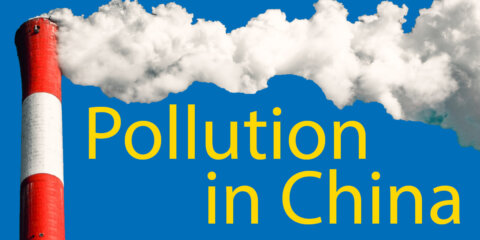
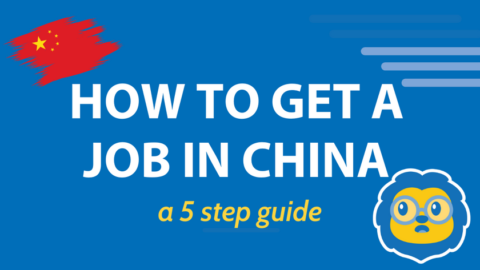
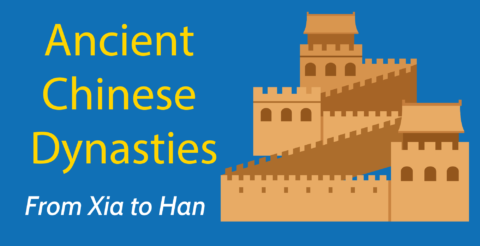
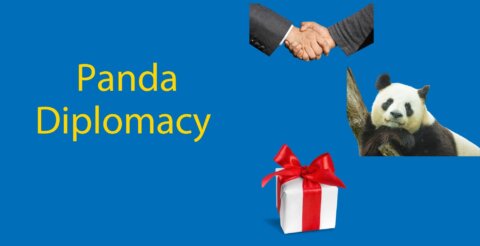
2 comments
Excellent article, 本家明!Thank you! Looking forward to seeing more of your articles.
Thanks for your comment!